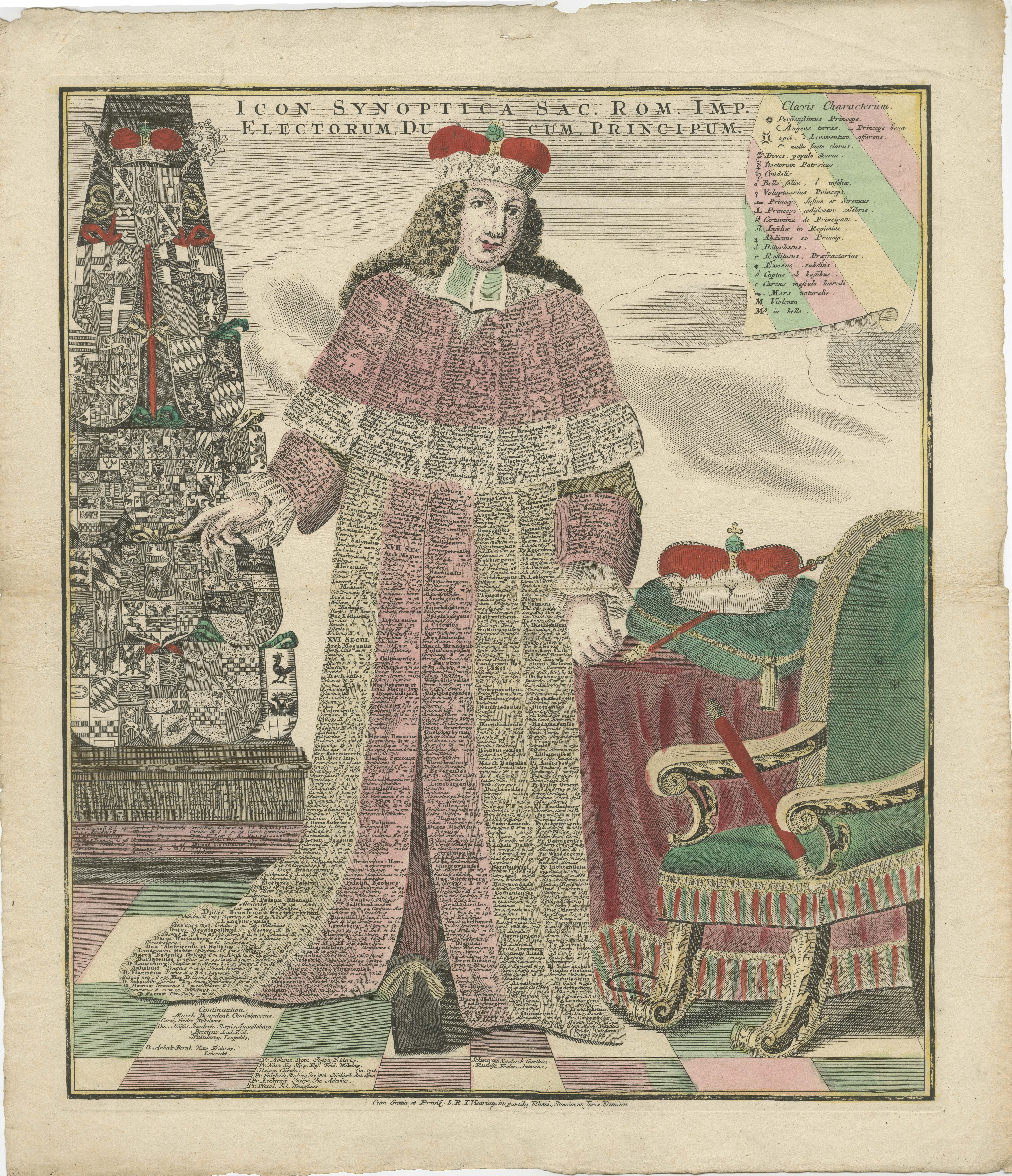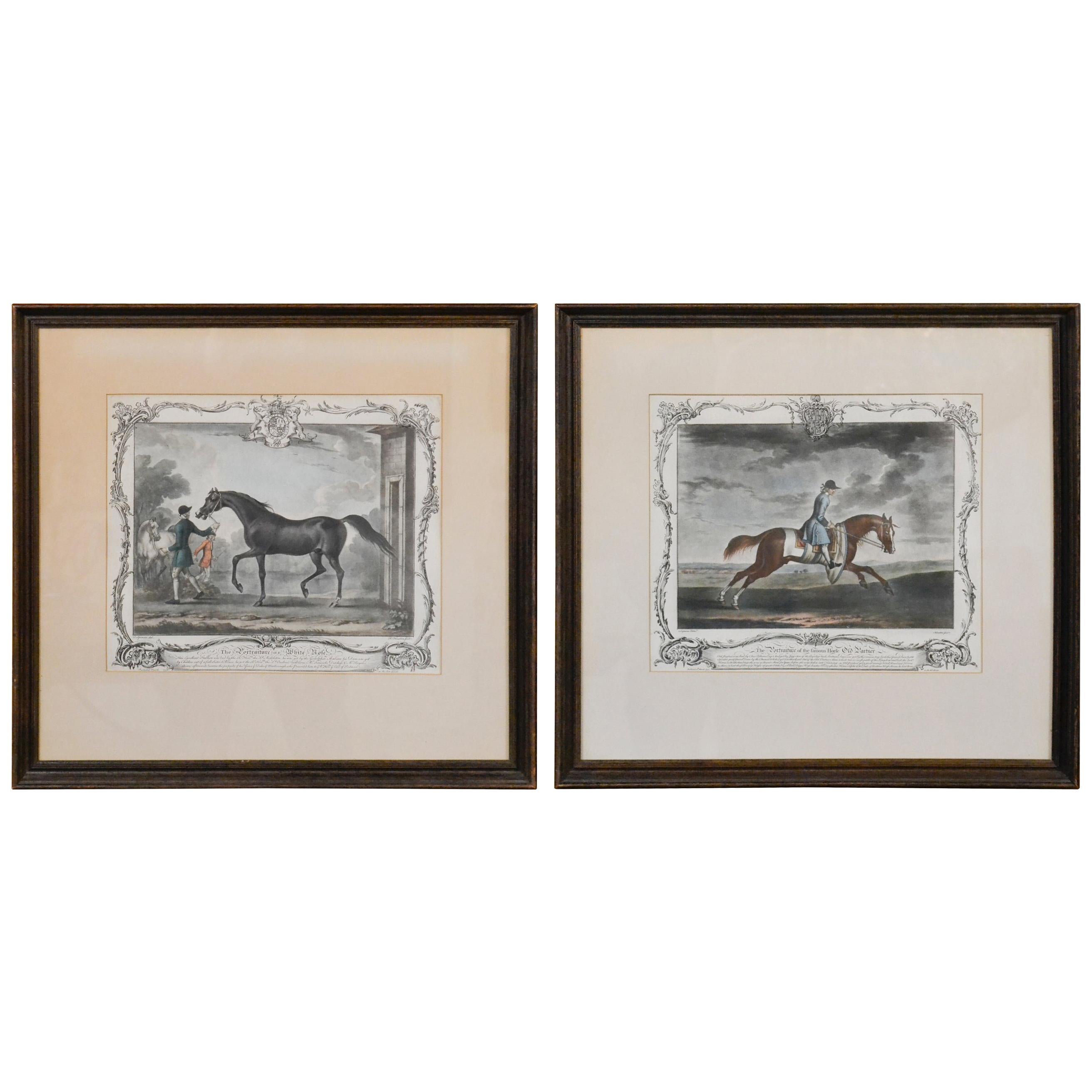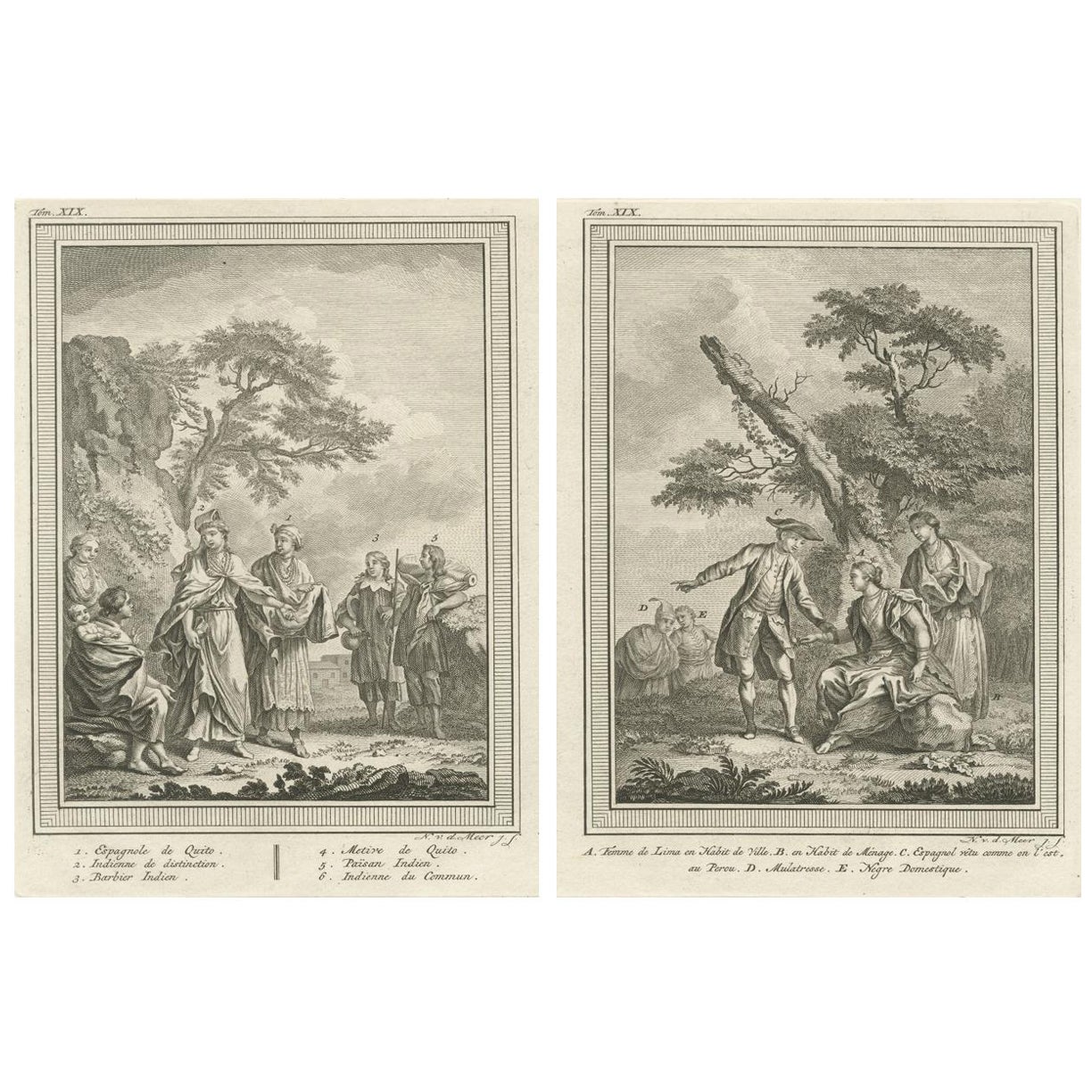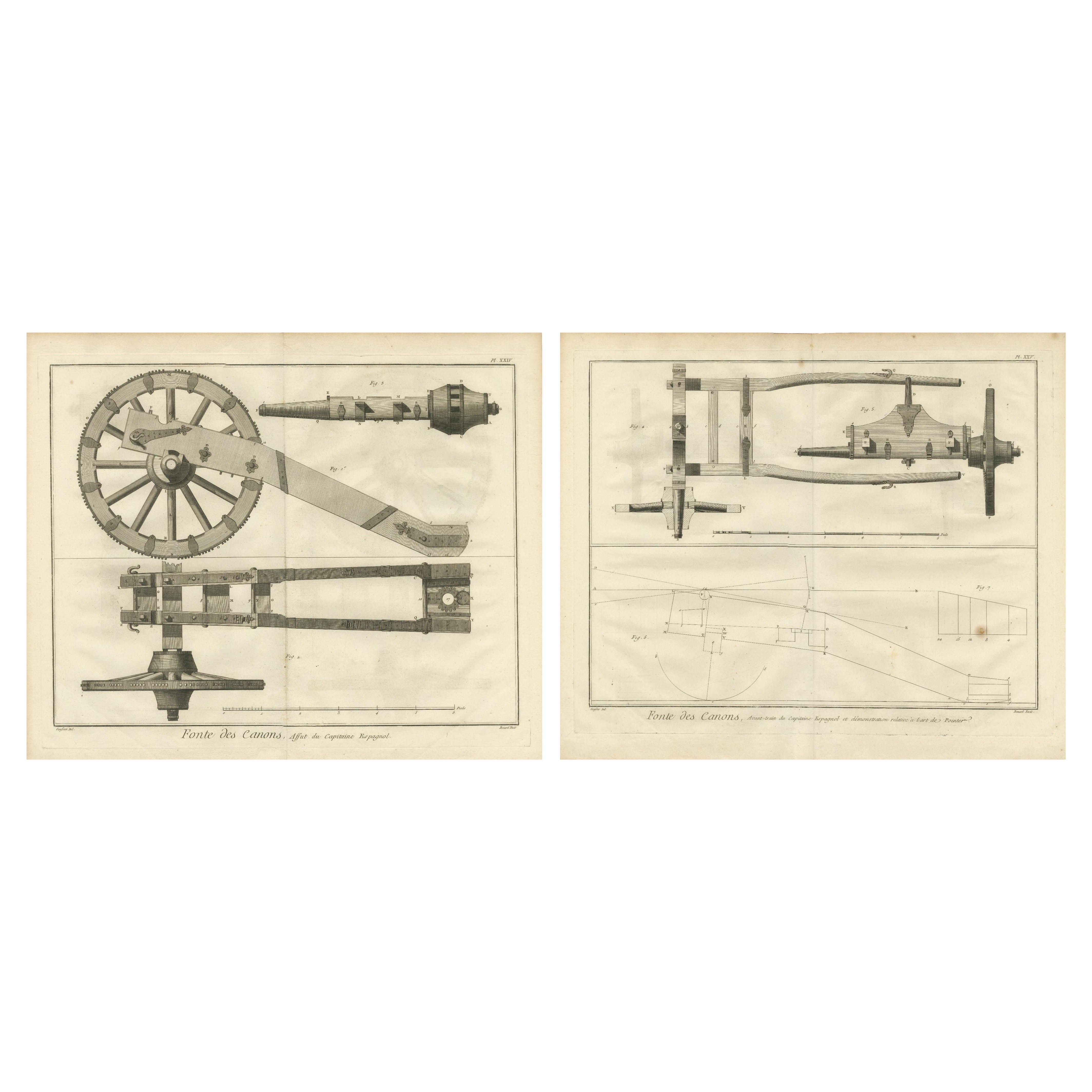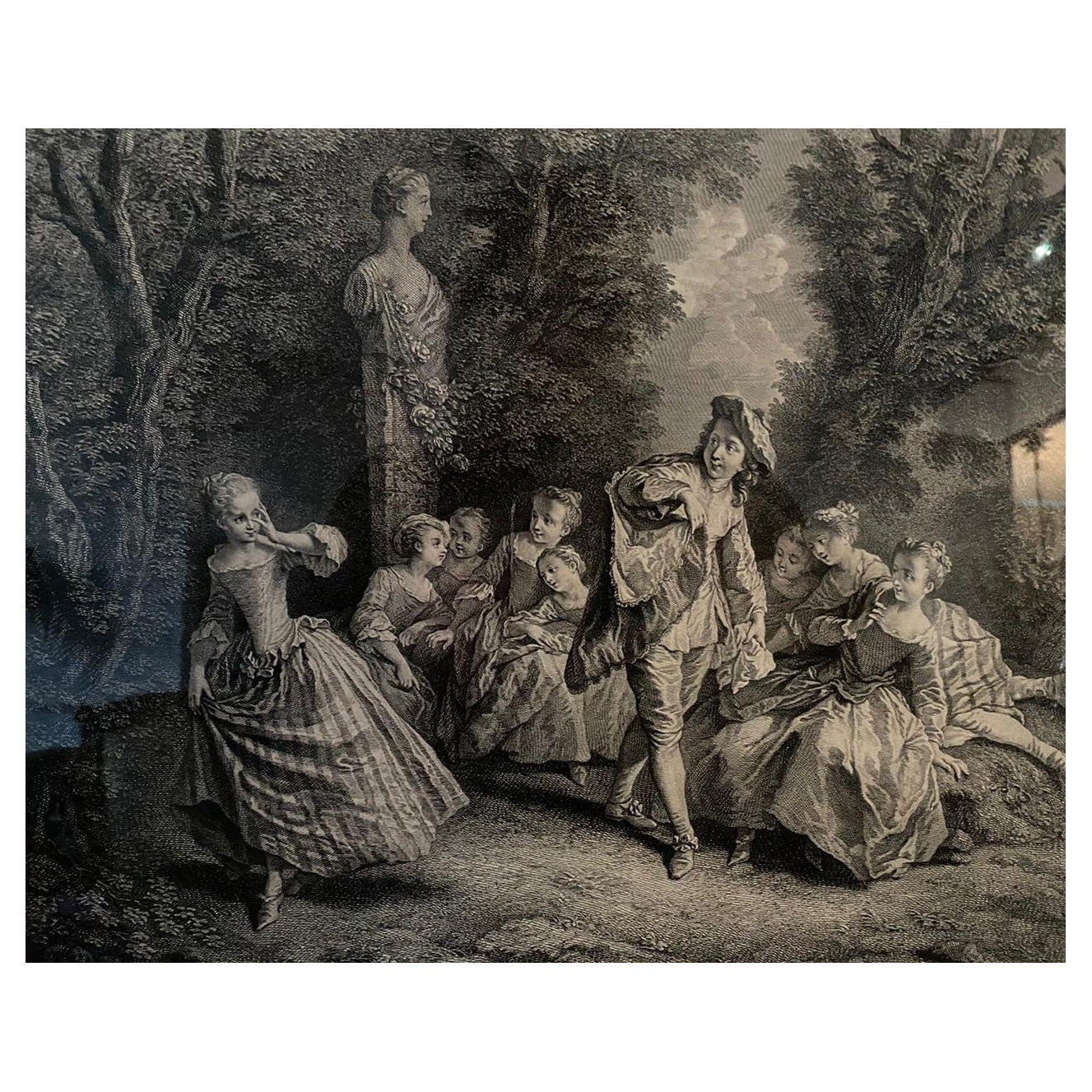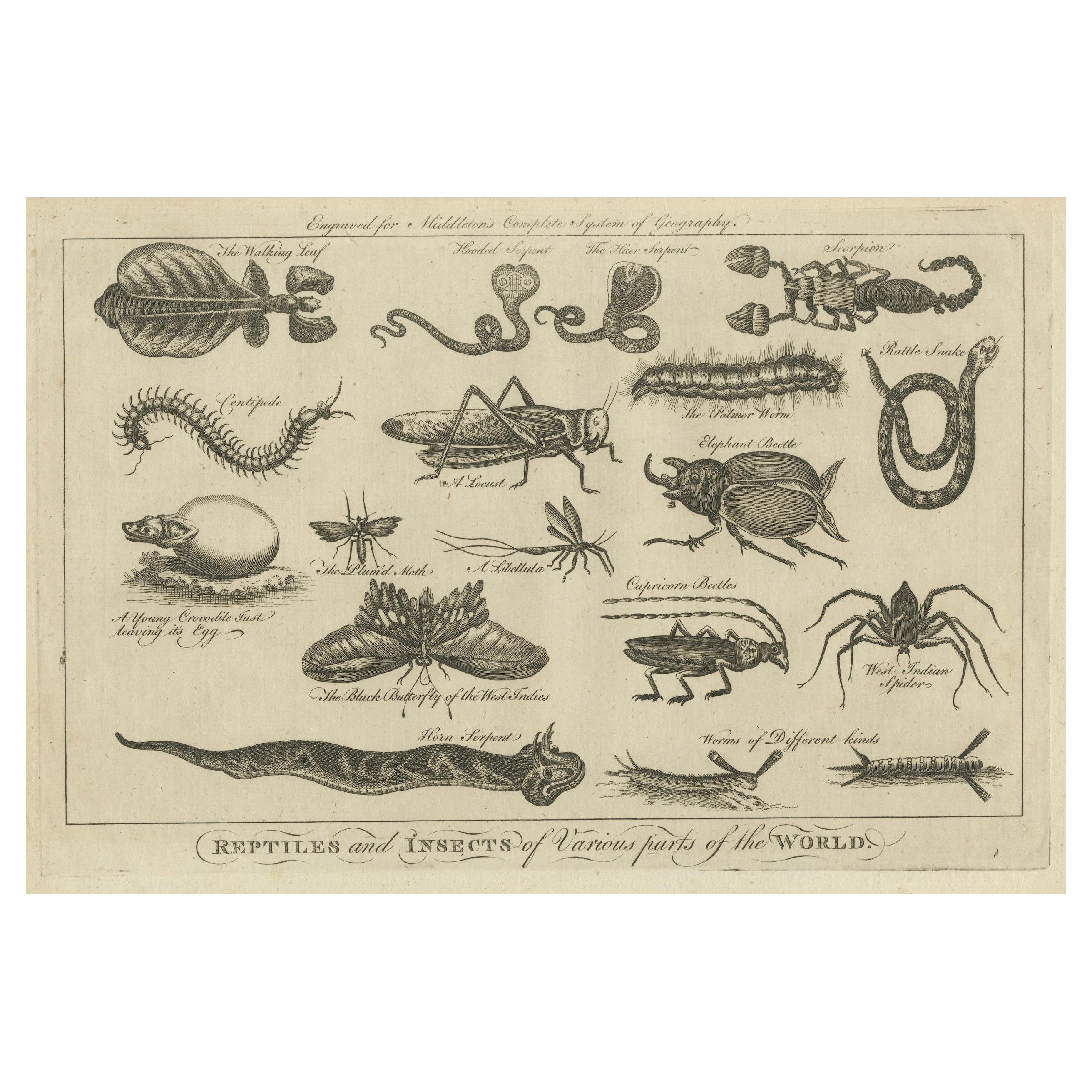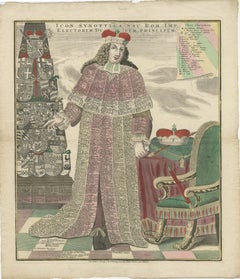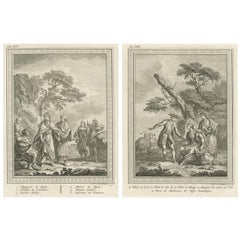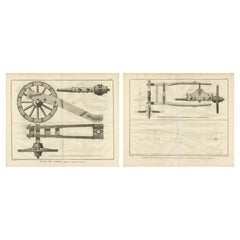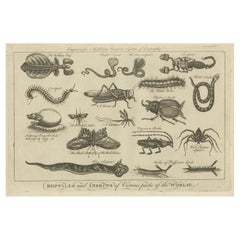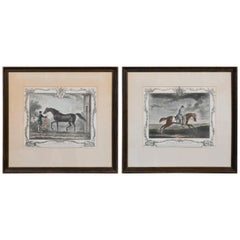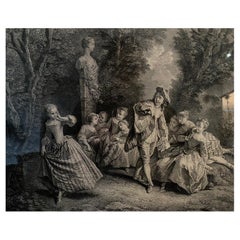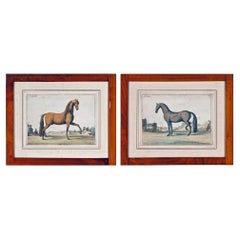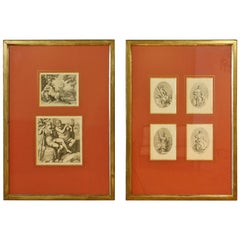Items Similar to Striking 18th-Century Engraving of Papal Chronology and Symbols of the Vatican
Want more images or videos?
Request additional images or videos from the seller
1 of 8
Striking 18th-Century Engraving of Papal Chronology and Symbols of the Vatican
About the Item
Title: Striking 18th-Century Engraving of Papal Chronology and Symbols of the Vatican
This beautifully detailed 18th-century engraving, 'Pontificum Romanorum Series Chronologica', presents a richly symbolic depiction of the papacy. The central figure, a solemn and elaborately robed pope, dominates the composition, representing the lineage of the Roman pontiffs. Inscribed on his vestments are detailed lists of the popes, forming a chronological history of the papacy.
The engraving also features an array of important Vatican symbols. Behind the pope is St. Peter’s Basilica, while the papal tiara, crosier, and keys of St. Peter reinforce the imagery of ecclesiastical authority and continuity. On the right, a vignette of broken papal regalia and cannon alludes to the struggles and triumphs of the Church through history.
The maker of this engraving, *Pontificum Romanorum Series Chronologica*, is Matthäus Seutter, a prominent German mapmaker and engraver of the 18th century. Seutter, who worked in Augsburg, is known for his detailed and decorative maps, engravings, and allegorical works. His style often combines historical information with elaborate artistic elements, as seen in this representation of the papacy.
Created with copperplate engraving, this print exhibits exceptional craftsmanship, capturing both intricate details and bold contrasts. The hand-coloring highlights the ornate elements of the papal attire, particularly the vibrant reds, blues, and golds, making this a visually striking and historically significant piece.
This engraving serves as a valuable artifact for collectors of religious history, ecclesiastical art, or Baroque prints. Its combination of historical narrative and symbolic richness provides a compelling visual account of the Catholic Church’s legacy.
Condition: In very good condition with vibrant original hand-coloring and overall clean margins. The right margin a bit short. Paper shows minimal aging and no significant flaws.
Matting and Framing Tips:
Use acid-free matting and UV-protective glass to preserve its vibrant colors and fine details. A gold-accented or dark wood frame will enhance its Baroque aesthetic. Ensure proper spacing between the print and glass to prevent damage. Display in a controlled environment away from direct sunlight and humidity to maintain its pristine condition.
- Dimensions:Height: 23.82 in (60.5 cm)Width: 20.48 in (52 cm)Depth: 0.01 in (0.2 mm)
- Materials and Techniques:Paper,Engraved
- Period:1740-1749
- Date of Manufacture:1740
- Condition:Condition: In very good condition with vibrant original hand-coloring and overall clean margins. The right margin a bit short. Paper shows minimal aging and no significant flaws. Study the images carefully.
- Seller Location:Langweer, NL
- Reference Number:Seller: BGCP0031stDibs: LU3054343449512
About the Seller
5.0
Recognized Seller
These prestigious sellers are industry leaders and represent the highest echelon for item quality and design.
Platinum Seller
Premium sellers with a 4.7+ rating and 24-hour response times
Established in 2009
1stDibs seller since 2017
2,417 sales on 1stDibs
Typical response time: <1 hour
- ShippingRetrieving quote...Shipping from: Langweer, Netherlands
- Return Policy
Authenticity Guarantee
In the unlikely event there’s an issue with an item’s authenticity, contact us within 1 year for a full refund. DetailsMoney-Back Guarantee
If your item is not as described, is damaged in transit, or does not arrive, contact us within 7 days for a full refund. Details24-Hour Cancellation
You have a 24-hour grace period in which to reconsider your purchase, with no questions asked.Vetted Professional Sellers
Our world-class sellers must adhere to strict standards for service and quality, maintaining the integrity of our listings.Price-Match Guarantee
If you find that a seller listed the same item for a lower price elsewhere, we’ll match it.Trusted Global Delivery
Our best-in-class carrier network provides specialized shipping options worldwide, including custom delivery.More From This Seller
View All18th-Century Holy Roman Empire Engraving with Heraldry and Imperial Symbols
Located in Langweer, NL
Icon Synoptica Sac. Rom. Imp. Electorum Ducum cum Principum – 18th-Century Allegorical Engraving
This fascinating 18th-century engraving, 'Icon Synoptica Sac. Rom. Imp. Electorum ...
Category
Antique 1740s Prints
Materials
Paper
18th Century Ethnological Engravings of Peruvians and Ecuadorians
Located in Langweer, NL
Title: 18th Century Ethnological Engravings of Peruvians and Ecuadorians
Description: These two 18th-century engravings, printed in 1756, are detailed depictions of the social and cultural life in Peru and Ecuador during the colonial era. Created by Quentin-Pierre Chedel (1705–1762), they are part of *Histoire générale des voyages* by Antoine François Prévost, a monumental collection that documented the world's exploration and cultural encounters.
First Engraving (Residents of Peru):
This print illustrates the residents of Lima, Peru, highlighting the various social classes and ethnic groups present in the region during the colonial period. The detailed engraving captures:
A. Femme de Lima en Habit de Ville – A woman from Lima in formal city dress, representing the elite of society.
B. Femme en Habit de Ménage – A woman in household dress, typical of a middle or upper-class domestic attire.
C. Espagnol vêtu comme on l’est au Pérou – A Spanish man dressed as one would in Peru, showing the influence of Spanish colonial fashion on local attire.
D. Mulatresse – A woman of mixed African and European descent, reflecting the diverse ethnic makeup of colonial Peru.
E. Nègre Domestique – A domestic servant of African descent, showcasing the role of enslaved individuals in colonial households.
The scene is set in a lush, natural landscape, with attention to the differences in social standing and attire.
Second Engraving (Residents of Quito, Ecuador):
The second engraving, although similar in style, depicts residents of Quito, Ecuador, and provides an ethnological view of the city’s diverse inhabitants. The composition shows:
1. Espagnole de Quito – A Spanish woman of high status, dressed elegantly, representing the colonial upper class in Quito.
2. Indienne de Distinction – An Indigenous woman of notable status, likely representing the local nobility or important community figures.
3. Barbier Indien – An Indigenous barber, reflecting the occupational diversity and social roles of the Indigenous population in colonial society.
4. Métive de Quito – A Métis woman from Quito, showing the mixed-race population that emerged during the colonial era.
5. Paysan Indien – An Indigenous farmer, indicating the essential role of agriculture and rural labor in the economy of colonial Ecuador.
6. Indienne du Commun – A common Indigenous woman, dressed in traditional attire, representing the majority of the Indigenous population.
Like the first engraving, this print captures the varied ethnic and social dynamics in a colonial society, with figures placed in a landscape setting, emphasizing the connection between people and their environment.
These engravings are not only artistic representations but also important historical records of colonial Latin America...
Category
Antique Mid-18th Century Prints
Materials
Paper
18th-Century Artillery Engraving of the Spanish Captain's Carriage and Mechanism
Located in Langweer, NL
Title: 18th-Century Artillery Engraving of the Spanish Captain's Carriage and Mechanisms
Description: This highly detailed 18th-century engraving presents a meticulously rendered...
Category
Antique 1770s Prints
Materials
Paper
The Wonders of Nature: Exquisite 18th Century Engravings of Reptiles and Insects
Located in Langweer, NL
This print, titled "Reptiles and Insects of Various Parts of the World," is an 18th-century engraved work issued around 1778 in London for Middleton. It features an array of meticulo...
Category
Antique Late 18th Century Prints
Materials
Paper
Mid-18th Century Engraving Depicting The Baptism of Russians, 1735
Located in Langweer, NL
Description: Antique print titled 'De Doop der Russen' (Dutch for 'Baptism of the Russians')
Old print depicting the baptism of Russians. This print originates from 'Hedendaegsch...
Category
Antique 1730s Prints
Materials
Paper
Knight of the Order of Calatrava – 18th-Century Hand-Colored Engraving
Located in Langweer, NL
Knight of the Order of Calatrava – 18th-Century Hand-Colored Engraving
This exquisite hand-colored engraving depicts a Knight of the Order of Calatrava, a distinguished Spanish mili...
Category
Antique 1790s Prints
Materials
Paper
You May Also Like
18th Century Pair of English Engravings
Located in Dallas, TX
Superb pair of 18th century English engravings.
Category
Antique 18th Century English Decorative Art
$2,035 / set
Nicolas Lancret « the Game of Hide and Seek » Engraving 18th Century
By Nicolas Lancret 1
Located in Beuzevillette, FR
This wonderful engraving belongs to a set of three engravings representing children's games. This series dates from the 18th century. It consists of the game of hide and seek, the game of the four corners and the game of the ox leg.
The scene depicted here is immersed in an abundance of nature. In the centre is a young girl walking away with her eyes poorly concealed. A young man is also walking away in the opposite direction, holding a handkerchief in his left hand. Behind them, seven other girls are sitting down and seem to be paying no attention to the two young men in the foreground. In the background is a bust resting on a pillar, all decorated with roses.
This scene is taken from a painting by Nicolas Lancret...
Category
Antique 18th Century French Picture Frames
Materials
Paper
Pair of 18th Century Engravings of Horses
Located in Downingtown, PA
Each print is mounted in a cherrywood parcel-gilt frame, with a glazed reverse depicting the corresponding text sheet.
L'Andaloux, Le Cheval d'Espagne, Plate I;
Le Barbe, Le Che...
Category
Antique Mid-18th Century French Georgian Prints
Materials
Paper
$3,750 / set
Framed Set of 18th Century Classical Engravings
Located in Pembroke, MA
Two French matted and framed 18th century black and white engravings inspired by Classical Antiquity. The first frame contains an engraving of a woman patting a unicorn, and a man an...
Category
Antique 18th Century French Classical Greek Prints
Materials
Giltwood, Paper
$3,500 Sale Price / set
20% Off
Set of Twelve 18th Century Zoological Engravings
Located in Shipston-On-Stour, GB
A rare 18th Century set of 12 handcoloured copperplate engravings of Zoological studies, featuring primates of varying species. Each colourfully executed with a naive charm, and Lati...
Category
Antique 1770s German Other Prints
Materials
Glass, Wood, Paint, Paper
18th Century Framed Fashion Engraving
Located in Vista, CA
18th century framed fashion engraving.
Category
Antique Mid-18th Century European Prints
Materials
Paper
